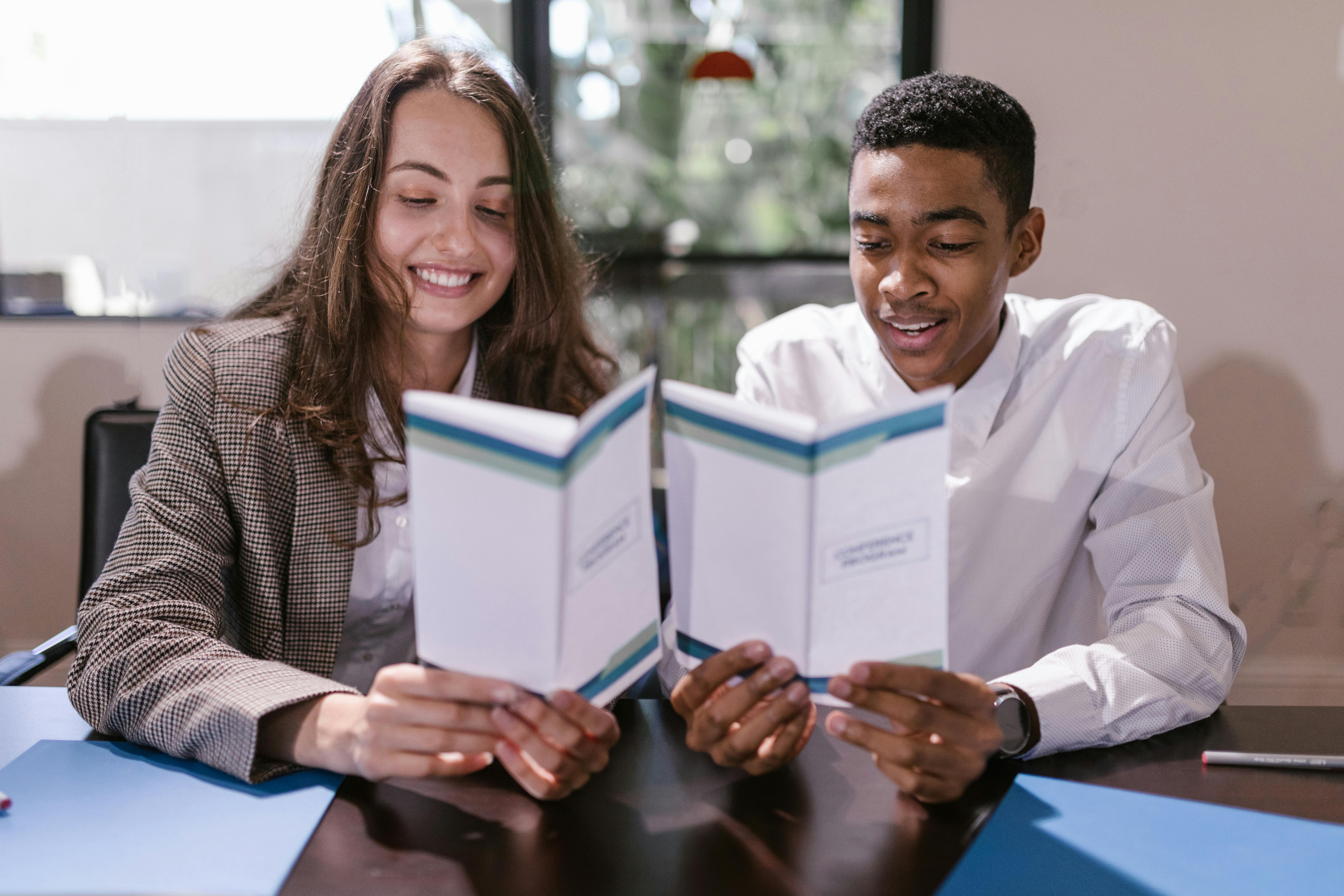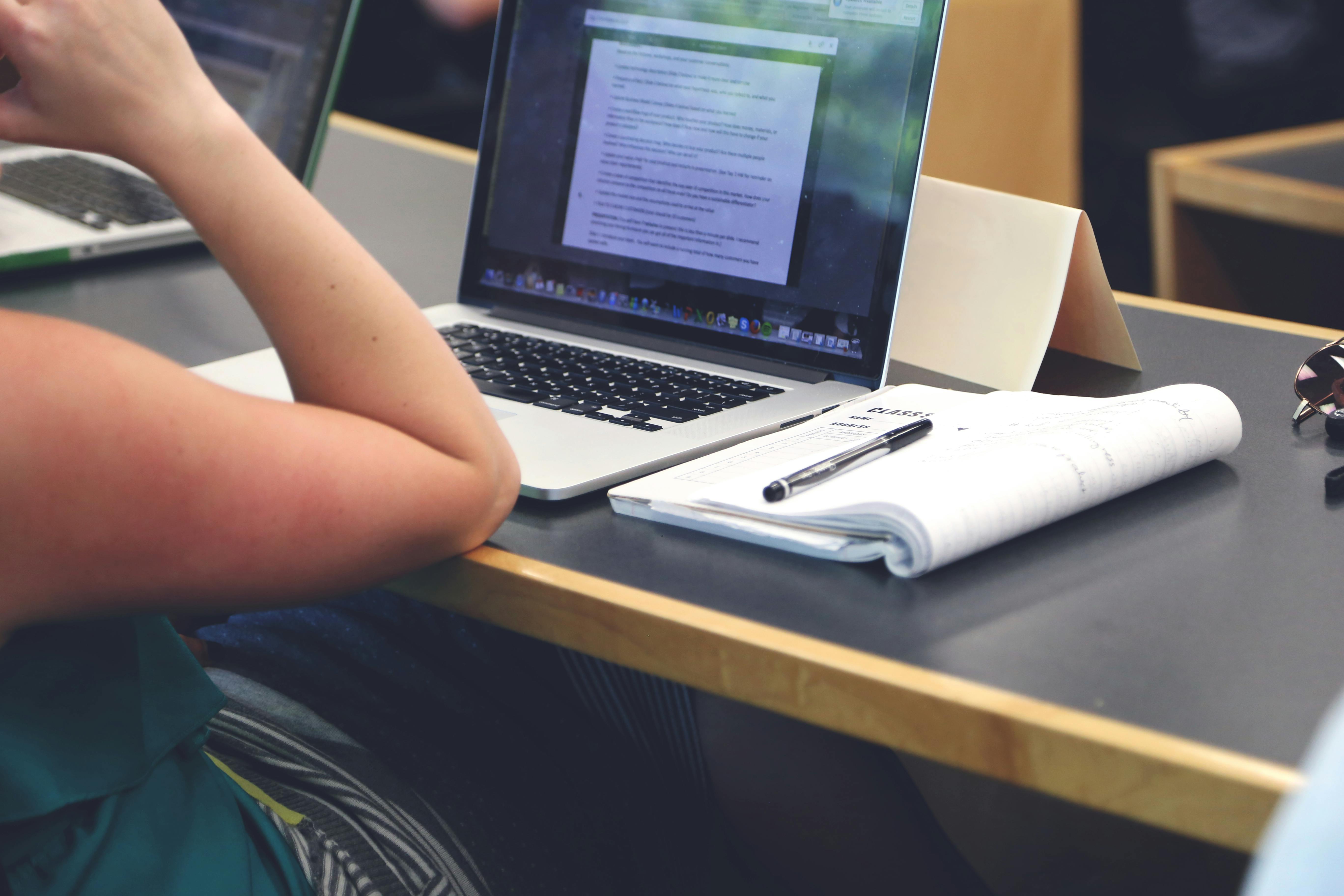From the avid conversationalist to the reserved introvert, everyone needs to prepare for a college interview. Building up your interview skills will help serve you now and in the future. In this guide, we’ll cover what to do before, during and after your college interview, so you are prepared and composed from start to finish.
Read on and find out how to prepare for a college interview.
Before the College Interview
You only have one opportunity to ‘wow’ the admissions department in your college interview. But if you start preparing in advance, you’ll have plenty of time to hone your interview skills. Focus, commitment, and the tips below will help you prepare for the interview ahead.
Get ready to answer common college interview questions
A college interview will mainly consist of—yup, you guessed it—interview questions. Since you know lots of questions are coming your way, take time to compile a list of ones you’ll probably be asked. Questions to expect include:
- Why do you want to attend this university?
- What are your strengths and weaknesses?
- Can you tell me about a time when you overcame a difficult challenge in your life?
If you’re a busy student, we’ve got you covered. Browse our list of top 10 common college interview questions for solid interview preparation.
Research the school and develop your own questions
Another pivotal component of preparing for a college interview is performing research. Let’s be clear—we don’t mean doing a quick online search and scanning a few website pages. To stand out, dig deeper than the average applicant.
This means learning about the founding principles and core values of the institution along with current events. If you can, reach out to alumni or current students to get insights about the school and the interview process. This insider knowledge will give you a leg up in the interview.
As you learn more about the courses, campus, organizations and opportunities, compile a list of questions. This way, you’ll have a mental list of questions to bring up when the interviewer gives you the floor.
Sharpen your skills with mock interviews
You can only get so far by formulating answers and planning out how you’ll respond. The next step is to begin practicing. Set up a trial run with a counselor, parent or mentor who will serve as the interviewer and ask you questions. Once you’ve gone through a few rounds, take your mock interview to the next level with a mock interview service.
Unlike a run-of-the-mill mock interview, an InterviewFocus interview provides you with a detailed evaluation of six soft skills and personalized improvement recommendations. The proprietary software reports your eye contact, use of filler words like “uh” and “um” and examines facial expressions. By knowing your weak spots, you’ll be able to improve in the areas where it counts.
The Day of the College Interview
When the day of the interview rolls around, don’t let your nerves get the best of you. Below, find out how to prepare for a college interview on the big day.
Put your best foot forward
Research shows that how you dress impacts your confidence and even the way that you think. Dressing well also makes a great impression on an interviewer, so arriving in a professional outfit is a no-brainer.
Make sure your clothing is neat and wrinkle-free on the day of your college interview. The same presentation rules apply if you will be on a virtual video call.
Read our interview attire tips for more ideas on how to look your best.
Be punctual and on your best behavior
Showing up on time for your college interview is good, but showing up 10 to 15 minutes early is better. On the day of your college interview, give yourself plenty of time to account for heavy traffic or unforeseen circumstances.
To avoid a stressful situation, do the following a few days before the interview:
- Confirm the address and room number (changes in interview location may have occurred)
- Drive to the interview location and record the travel time
Once you arrive, be respectful and kind to each person you come in contact with on the way to the interview. You never know who you may come across, so it’s important to be polite.
Be mindful of body language
Your nonverbal communication speaks volumes! You can make simple adjustments to your body language to come across as self-assured and engaged.
Pull your shoulders back and sit up straight while you’re in the interview. Remember to smile at times as you speak and listen to the interview. Believe it or not, a smile is a powerful interview tool, so be sure to flash a grin when appropriate. Avoid hunching over, crossing your arms or fidgeting in your chair.
Implement the feedback from your practice interviews to correct your body language. Even small tweaks in posture can help you convey poise and confidence.
After the College Interview
Knowing how to prepare for a college interview is crucial. But you can also make an impact after you walk out the door. For a tip on making yourself a more memorable applicant, keep reading.
Leave a lasting impression
Sending a handwritten ‘thank you’ letter soon after your interview is a great way to let the interviewer know you’re thankful for the opportunity. Many applicants won’t send a note following an interview, and some may send an email to express their gratitude. But how many will take the time to write and mail a note?
In the digital age, a handwritten note is rare and impactful. It reminds the interviewer of your conversation and, once again, displays your interest in the school. Consider taking the time to pen a simple ‘thank you’ note.
Get Interview Preparation with the Pros
At InterviewFocus, we understand that college interviews can be nerve-wracking. We also understand that proper preparation can make all the difference when it comes to how you perform in an interview.
That’s why our innovative interview software analyzes facial expressions, reports the use of filler words, measures tone of voice and much more. Start practicing with mock interviews today by trying out InterviewFocus!







